Place of Origin: Venezuela
Birthdate/Age: Unknown
Profession:
Tattoos: Unknown
Status: In Custody – Centro de Confinamiento del Terrorismo (CECOT)
CBP One Participant: Unknown
Julio Rafael Fernández Sánchez (34 ), originally from the town of San Mateo in the state of Aragua (in the north-central region of Venezuela), achieved his dream of reaching the United States with his wife, Carolina Carillo and her 17-year old son in July 2024. Julio has no biological children but he and Carolina have been together for 14 years and he raised her three children as his own.
Julio had already spent six years in Peru, where he managed to acquire three motorcycles. While he worked as a motorcycle taxi driver, he rented the other two vehicles to colleagues.
“We arrived in the United States through the CBP One app. We made the same journey many others do, and when we reached Mexico, we decided to proceed since President Biden had implemented this program where, through the CBP One appointment, we could enter legally and more easily obtain our documents here in the U.S,” said Julio’s wife, Carolina Carillo in an interview.
We waited almost five months working in a taco shop— my husband in the kitchen and I as a waitress — until we got the CBP One appointment on July 18, 2024.
When we showed up for the appointment, it was my 17-year-old son, my husband Julio Fernández, and me. They began interviewing us, like many others there, collecting our documents, fingerprints, and other things. After a while, some officers came looking for my husband because he has a tattoo on his forearm, and he was wearing a long-sleeve shirt. I thought, okay, they’ll check his tattoo — no fear, because we have nothing to hide and are fine with being investigated so we can enter the country.
“But my husband never came back. Officers took him, and hours passed before they told me, ‘Welcome to the country, ma’am, with your son.’ And I said, ‘Wait — what? I didn’t come here alone with my son. I came with my husband. They took him for inspection. Where is he? What happened?’”
“Honestly, they practically told me I had to leave and that my husband would be sent somewhere the next day. My brother-in-law arranged for us to go to Florida. Two days later, my husband called from a correctional center in Florence, Arizona, saying he was being detained and would undergo a credible fear interview.”
“So we said, “Okay, let’s wait for that. Hopefully soon you’ll be with us. He then had the credible fear interview, and eight days later, they approved him and gave him a court date for April 17th.”
Despite all this, Julio remained in a detention center. He was told he was being detained because of his tattoos. Carolina settled in to wait for Julio. She enrolled her son in school. They were both sad and worried about Julio but determined to start their life in the US so he would have a place to come when he was released.
In March, 2025 Julio called Carolina “saying he was going to be transferred to Texas, to a detention center in the Valley, and he didn’t know why. We continued hoping, thinking, ‘You’re probably going to wait there for your court date on April 17.’”
“But on Friday March 13, he called very sad — unlike many Venezuelans who were feeling relieved — and told me, ‘I’m really sad because they just told me I’m going to be deported to Venezuela. I don’t know why. I didn’t want to leave you alone — that wasn’t the goal after everything we’ve fought for. I don’t understand why I’m being deported. They didn’t let me prove who I am. They didn’t let me show my documents, my criminal record, or my papers,’ Carolina said.
“And I said, ‘Well, this must be God’s will. May God protect you. I hope things go well.’ And then I didn’t hear from my husband again. Until I started seeing in the news on Sunday what was happening in El Salvador.”
“I thought, “What’s going on?” No plane had landed in Venezuela. I started to worry. Then [on March 20] the list was published. That’s when I confirmed that, yes, my husband is detained in El Salvador.”
Carolina worries greatly about Julio’s safety in the Salvadoran torture prison, CECOT. “He is a hardworking, innocent man and there are terrorists there,” she said.
“My 17-year-old son, who is here, is not doing well at all,” Carolina said. He won’t leave his room. He’s been crying. Julio is more than a stepfather — he’s his father. He’s raised him since he was about eight years old. He says, ‘Mom, if Julio gets sent back to Venezuela, I want to go too. We’ll go together.’”
“Julio has always been the head of our household. He guided us on our journey. We’ve always depended on him — not financially, because I’ve always worked with him — but in terms of leadership, guidance, and support for the family. He took care of everything for the kids, even taking them to school. Our relationship has always been healthy and strong, and I can truly vouch for him as a good, honest, and hardworking man.”
“I have a lot of faith that this will be resolved. I can’t believe that someone innocent, with no crimes, would spend years in a place like that. I say justice must be served. The authorities must get involved. Even the worst criminals — and I’m sure Julio would say this too — even the worst criminals have the right to have their cases reviewed, to defend themselves, to plead guilty or not. So how much more so should he — who is innocent — have the right to have his case reviewed, to prove his innocence. I can’t imagine him spending years there,” Carolina added.
«PreviousLeonel Javier Echavez PazObed Eduardo Navas DíazNext»
Articles:
Lugar de Origen: Venezuela
Fecha de Nacimiento/Edad: Unknown
Profesión:
Tatuajes: Desconocido
Estado: In Custody – Centro de Confinamiento del Terrorismo (CECOT)
Participante de CBP One: Desconocido
From The Disappeared:
Julio Rafael Fernández Sánchez (34), originario del pueblo de San Mateo en el estado de Aragua (en la región centro-norte de Venezuela), logró su sueño de llegar a Estados Unidos con su esposa, Carolina Carillo y su hijo de 17 años en julio de 2024. Julio no tiene hijos biológicos, pero ha estado junto a Carolina durante 14 años y ha criado a sus tres hijos como si fueran suyos.
Julio ya había pasado seis años en Perú, donde logró adquirir tres motocicletas. Mientras trabajaba como taxista de motocicletas, alquilaba los otros dos vehículos a colegas.
“Llegamos a Estados Unidos a través de la aplicación CBP One. Hicimos el mismo viaje que muchos otros hacen, y cuando llegamos a México, decidimos continuar ya que el presidente Biden había implementado este programa donde, a través de la cita de CBP One, podíamos ingresar legalmente y obtener nuestros documentos aquí en Estados Unidos de manera más fácil”, dijo la esposa de Julio, Carolina Carillo en una entrevista.
Esperamos casi cinco meses trabajando en una taquería — mi esposo en la cocina y yo como mesera — hasta que obtuvimos la cita de CBP One el 18 de julio de 2024.
Cuando nos presentamos a la cita, estaba mi hijo de 17 años, mi esposo Julio Fernández y yo. Comenzaron a entrevistarnos, al igual que a muchos otros allí, recopilando nuestros documentos, huellas dactilares y otras cosas. Después de un tiempo, algunos oficiales vinieron a buscar a mi esposo porque tiene un tatuaje en el antebrazo, y llevaba una camisa de manga larga. Pensé, está bien, revisarán su tatuaje — no tenemos miedo, porque no tenemos nada que ocultar y estamos bien con ser investigados para poder ingresar al país.
“Pero mi esposo nunca regresó. Los oficiales lo llevaron, y pasaron horas antes de que me dijeran, ‘Bienvenida al país, señora, con su hijo’. Y yo dije, ‘Espera — ¿qué? No vine aquí sola con mi hijo. Vine con mi esposo. Lo llevaron para una inspección. ¿Dónde está? ¿Qué pasó?’”
“Honestamente, prácticamente me dijeron que tenía que irme y que a mi esposo lo enviarían a algún lugar al día siguiente. Mi cuñado organizó que fuéramos a Florida. Dos días después, mi esposo llamó desde un centro correccional en Florence, Arizona, diciendo que estaba detenido y que se sometería a una entrevista de miedo creíble.”
“Así que dijimos, ‘Bien, esperemos eso. Con suerte pronto estarás con nosotros’. Luego tuvo la entrevista de miedo creíble, y ocho días después, lo aprobaron y le dieron una fecha de corte para el 17 de abril.”
A pesar de todo esto, Julio permaneció en un centro de detención. Le dijeron que estaba detenido por sus tatuajes. Carolina se estableció para esperar a Julio. Inscibió a su hijo en la escuela. Ambos estaban tristes y preocupados por Julio, pero decididos a comenzar su vida en Estados Unidos para que él tuviera un lugar al que regresar cuando fuera liberado.
En marzo de 2025, Julio llamó a Carolina “diciendo que lo iban a trasladar a Texas, a un centro de detención en el Valle, y no sabía por qué. Seguimos esperando, pensando, ‘Probablemente esperarás allí para tu fecha de corte el 17 de abril’.”
“Pero el viernes 13 de marzo, llamó muy triste — a diferencia de muchos venezolanos que se sentían aliviados — y me dijo, ‘Estoy muy triste porque me acaban de decir que me van a deportar a Venezuela. No sé por qué. No quería dejarte sola — ese no era el objetivo después de todo por lo que hemos luchado. No entiendo por qué me están deportando. No me dejaron demostrar quién soy. No me dejaron mostrar mis documentos, mi historial criminal o mis papeles,’ dijo Carolina.
“Y yo dije, ‘Bueno, esto debe ser la voluntad de Dios. Que Dios te proteja. Espero que todo salga bien.’ Y luego no volví a saber de mi esposo. Hasta que empecé a ver en las noticias el domingo lo que estaba sucediendo en El Salvador.”
“Pensé, ‘¿Qué está pasando?’ No había aterrizado ningún avión en Venezuela. Empecé a preocuparme. Luego [el 20 de marzo] se publicó la lista. Ahí fue cuando confirmé que, sí, mi esposo está detenido en El Salvador.”
Carolina se preocupa mucho por la seguridad de Julio en la prisión de tortura salvadoreña, CECOT. “Él es un hombre trabajador e inocente y hay terroristas allí,” dijo.
“Mi hijo de 17 años, que está aquí, no está bien en absoluto,” dijo Carolina. No sale de su habitación. Ha estado llorando. Julio es más que un padrastro — es su padre. Lo ha criado desde que tenía unos ocho años. Dice, ‘Mamá, si Julio es enviado de vuelta a Venezuela, quiero irme también. Nos iremos juntos.’”
“Julio siempre ha sido el líder de nuestro hogar. Nos guió en nuestro viaje. Siempre hemos dependido de él — no financieramente, porque siempre he trabajado con él — pero en términos de liderazgo, orientación y apoyo para la familia. Se encargaba de todo para los niños, incluso llevarlos a la escuela. Nuestra relación siempre ha sido sana y fuerte, y realmente puedo dar fe de él como un hombre bueno, honesto y trabajador.”
“Tengo mucha fe en que esto se resolverá. No puedo creer que alguien inocente, sin delitos, pase años en un lugar así. Digo que la justicia debe prevalecer. Las autoridades deben involucrarse. Incluso los peores criminales — y estoy segura de que Julio diría lo mismo — incluso los peores criminales tienen derecho a que se revisen sus casos, a defenderse, a declararse culpables o no. Entonces, cuánto más debería él — que es inocente — tener derecho a que se revise su caso, a demostrar su inocencia. No puedo imaginarlo pasando años allí,” agregó Carolina.

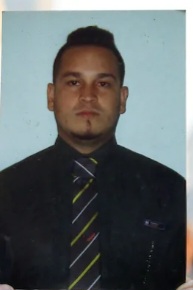
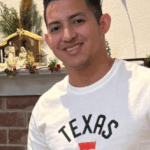
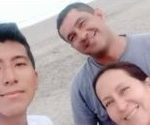
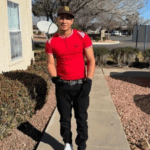
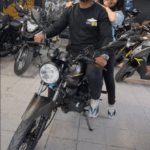
Leave a Reply